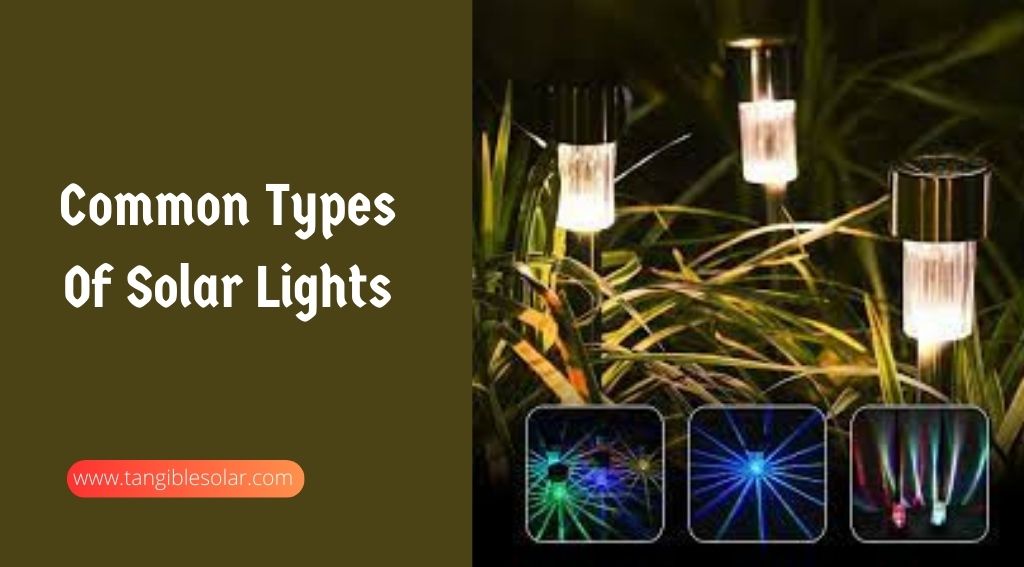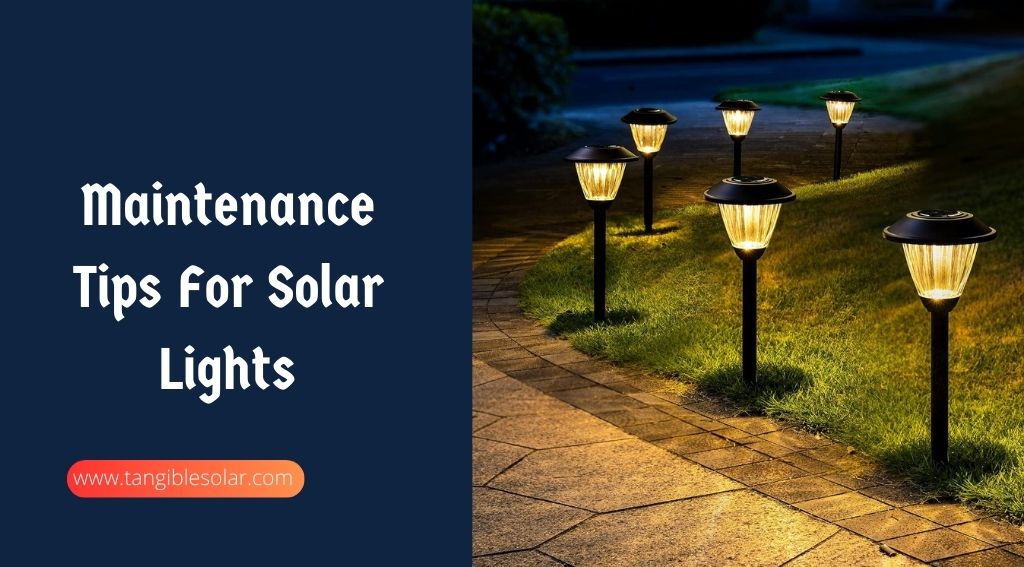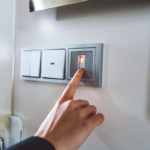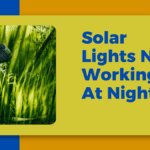How to Turn off Solar Lights: A Complete Guide
To turn off solar lights, locate the switch or button on the solar panel or the light itself and simply flip it to the off position. Solar lights are designed to automatically turn on at night and off during the day, so manually turning them off is usually not necessary unless you want to conserve energy or the lights are not in use.
By turning off solar lights, you can extend their battery life and maximize their efficiency. have become increasingly popular for their energy efficiency and ease of installation. These panels harness the sun’s energy during the day, converting it into electricity to power the lights at night.
However, there may be instances where you want to turn it off manually. We will discuss the simple steps you can follow to turn off solar lights and the benefits of doing so.
Understanding The Basics Of Solar Lights
Solar lights are a popular and eco-friendly option for outdoor lighting. Harnessing the power of the sun, these lights provide an efficient and sustainable way to brighten up your outdoor spaces. To truly appreciate the benefits of them and learn how to turn them off effectively, it is essential to understand the basics of how they work. Let’s dive into the inner workings of them and explore the different components that make them function.
How do solar lights work?
Solar lights rely on photovoltaic cells to convert sunlight into electricity. The process begins with the solar panel, which is usually located on top of the light fixture. This panel absorbs the sunlight during the day and converts it into direct current (DC) electricity.
This DC electricity is then transferred and stored in a rechargeable battery, typically a lithium-ion or nickel-metal hydride battery. The battery stores the energy until it is needed to power the light.
As daylight fades and the sun sets, a light sensor, also known as a photoreceptor, detects the decrease in natural light. When the sensor detects darkness, it triggers the solar light to turn on automatically.
Once turned on, the battery releases the stored energy, powering the LED (light-emitting diode) lights within the solar fixture. These energy-efficient LEDs provide illumination throughout the night, illuminating walkways, gardens, or any outdoor space you desire.
How to Clean Solar Panels on Yard Lights
Components Of Solar Lights
Solar lights consist of several key components that work together to create a reliable and self-sustaining source of light:
- Solar panel: The solar panel is the primary component that captures sunlight and converts it into electricity. It is typically made up of multiple photovoltaic cells.
- Rechargeable battery: This is where the converted solar energy is stored during the day for later use at night. Commonly, lithium-ion or nickel-metal hydride batteries are used due to their efficient energy storage capabilities.
- Light sensor: The light sensor, also known as a photoreceptor, detects changes in ambient light levels. It triggers the solar light to turn on when it detects darkness.
- LED lights: LED bulbs are highly energy-efficient and long-lasting. They are the primary light source and provide bright illumination throughout the night.
- Controller: The controller regulates the charging and discharging of the battery. It ensures that the battery is properly charged during the day and that the lights turn on and off automatically based on the light sensor’s readings.
Benefits Of Using Solar Lights
Solar lights offer numerous advantages over traditional electric and are a great addition to any outdoor space. Some key benefits include:
- Cost-effective: rely on the sun’s energy, which is free and abundant. Once installed, they require no electricity from the grid, reducing energy costs.
- Eco-friendly: Renewable energy powers solar lights. By using them, you contribute to reducing carbon emissions and dependence on fossil fuels.
- Easy installation: these are typically wireless and require no electrical wiring. This makes installation hassle-free and allows for flexibility in their placement.
- Low maintenance: have minimal maintenance requirements. Besides occasional cleaning, they require no frequent bulb changes or complicated upkeep.
- Enhanced safety: can improve safety by illuminating pathways and outdoor areas, preventing accidents, and deterring potential intruders.
Understanding the basics, including how they work and their components, is vital to troubleshooting any issues and properly operating these energy-efficient lighting solutions.
Common Types Of Solar Lights

Solar lights have become increasingly popular due to their convenience and environmentally friendly nature. These lights harness the power of the sun to provide illumination without the need for electricity. Several common types are widely used in residential and commercial settings. In this article, we will explore the different types of and how to turn them off when needed.
Solar Garden Lights
a popular choice for illuminating outdoor spaces such as gardens, patios, or pathways. These lights are typically mounted on stakes and can be easily installed on the ground. They absorb sunlight during the day to charge the built-in batteries, which then power the lights at night. various designs and styles to suit different aesthetic preferences.
Solar Pathway Lights
Similar, are designed specifically for illuminating pathways and walkways. These lights are often installed along the edges of pathways to provide guidance and enhance them, and they are typically mounted on stakes or anchored into the ground. They are equipped with sensors that automatically turn the lights on at dusk and off at dawn.
Solar Security Lights
Solar security lights are ideal for enhancing the security of your property. typically brighter and have a wider range of coverage compared to others. use motion sensors to detect movement and automatically illuminate the area. This serves as a deterrent to potential intruders and provides peace of mind.
Solar String Lights
These lights are a string or series of solar-powered LED bulbs. often used to decorate outdoor gatherings, parties, or special events. They can be hung on trees, fences, or pergolas to create a warm and enchanting atmosphere. usually come with a built-in sensor that automatically turns the lights on at dusk and off at dawn.
Proper Techniques For Turning Off Solar Lights
Knowing the proper techniques for turning them off is essential. Whether you want to conserve energy or extend your lifespan, following the correct procedures is crucial. In this article, we will explore different methods for turning them off, including manual methods, using timers and sensors, and turning them off during extreme weather conditions.
How Long Do Dollar Tree Solar Lights Last
Turning Off Solar Lights Manually
Manually turning it off is a simple yet effective method. All you need to do is locate the switch or button on your solar light fixture. In most cases, this switch or button is located on the top or side of the light. Once you find the switch, simply press it to turn off the light.
It’s important to note that some may have different settings, such as low brightness and high brightness modes. To ensure you turn off the light completely, make sure you cycle through the various settings until the light is completely off.
Using Timers And Sensors To Control Solar Lights
If you prefer a more automated approach to turning off your device, using timers and sensors can be a great option. Timers allow you to set specific times for them to turn on and off automatically. This is especially useful if you want your lights to only be active during certain hours of the day or night.
Sensors, on the other hand, detect ambient light levels and automatically turn them on and off based on the amount of natural light available. This not only conserves energy but also ensures that you are only active when they are needed the most.
Turning Off Solar Lights During Extreme Weather Conditions
Extreme weather conditions, such as storms or heavy snowfall, can potentially damage your. To ensure the longevity of your lights and avoid any potential hazards, it’s crucial to turn them off during these conditions. This not only protects the lights from the elements but also prevents any electrical issues that may arise due to the extreme weather.
If you live in an area prone to extreme weather events, it’s highly recommended to invest in built-in weatherproofing and surge protection. These features can provide an extra layer of protection and prolong the lifespan of your lights.
Maintenance Tips For Solar Lights

Maintenance tips are a great way to bring light to your outdoor spaces while also being environmentally friendly. However, like any other outdoor fixture, they require regular maintenance to ensure optimal performance. In this section, we’ll discuss some essential maintenance tips that will help you keep them running efficiently year-round.
Troubleshooting Common Issues With Solar Lights
Solar lights are a fantastic way to illuminate your outdoor spaces while being eco-friendly. They harness the power of the sun to charge during the day and provide soft, ambient lighting at night. However, like any electronic device, can sometimes encounter common issues that affect its performance. device, it
Dim Or Weak Lights
If you notice that you are not shining as brightly as you used to, there could be a few reasons behind this issue:
- The solar panel might not be receiving enough sunlight. Make sure that there are no obstructions, such as branches or leaves, blocking the panel.
- Check if the solar panel is clean. Dust and debris can accumulate over time, reducing its efficiency. Gently clean the panel using a cloth and some mild detergent if needed.
- Battery drainage can also result in dim lights. Replace the rechargeable batteries with new ones if they are old or worn out.
Lights Not Turning On
If you not turning it on at all, here are a few troubleshooting steps you can take:
- Check the switch to confirm that it is in the “On” position. It may seem like an obvious step, but sometimes small oversights can lead to big problems.
- Make sure that the solar panel receives enough sunlight throughout the day. Position it in an area where it can get direct sunlight for several hours.
- Inspect the battery connections. Loose or corroded connections can prevent the lights from turning on. Clean up any corrosion and ensure that the connections are secure.
- If all else fails, the battery might need to be replaced. Over time, batteries can lose their ability to hold a charge. Swap out the old battery with a new one and see if that solves the problem.
Lights Turning On During The Day
If you are turning it on during the day instead of at night, there might be a few factors contributing to this issue:
- Check the position of the solar panel. If it is facing a source of artificial light, such as a street lamp or porch light, it may be triggering the lights to turn on prematurely. Reposition the solar panel away from any other light sources.
- Inspect the light control sensor. This sensor detects ambient light levels and determines when it should turn on. If the sensor is faulty or covered, it may malfunction. Remove any obstructions and ensure that the sensor is clean and functional.
By troubleshooting these common issues with yours, you can ensure that they continue to function optimally and provide the desired illumination for your outdoor spaces. Remember to regularly maintain and clean the solar panels, replace batteries as needed, and monitor sensor functionality to keep
Frequently Asked Questions On How To Turn Off Solar Lights
Why Did My Solar Lights Turn Off?
You may not be turning it off due to one of these reasons: 1) The switch is in the “on” position. 2) The batteries are not fully charged. 3) The solar panel is not receiving enough sunlight. 4) There is a fault in the wiring or circuitry.
5) The sensor is malfunctioning.
Why Don’t My Solar Lights Stay On All Night?
Solar lights may not stay on all night due to several factors, such as insufficient sunlight for charging, battery deterioration, or a faulty system. Check if the lights are properly positioned to receive maximum sunlight, replace the batteries if needed, and ensure the system is in good working condition.
How Do I Turn Off Solar lights at night?
To turn off solar lights at night, simply locate the switch or the on/off button and flip it to the off position. This will disable the solar light’s battery from charging and emitting light during the night.
Can I Manually Turn Off Solar Lights?
Yes, you can manually turn off solar lights. Most feature a switch or button that allows you to turn them off when needed. By flipping the switch to the off position, you can control when the lights are turned on or off, regardless of the amount of sunlight available.
Conclusion
To sum it up, turning off solar lights is a simple yet important task that can extend their lifespan and save energy. Remember to remove any obstacles that may obstruct the solar panels and consider using timers or motion sensors for added convenience.
By following these easy steps, you can enjoy the benefits of solar-powered lighting while still being mindful of energy conservation. Let your outdoor space shine bright while being eco-friendly!




